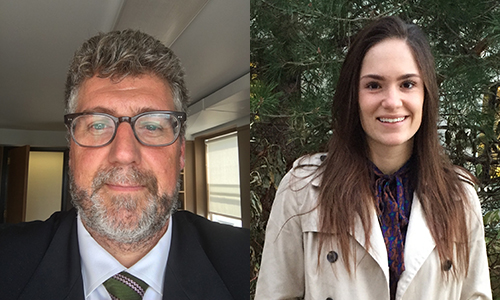
Checking the foundation
We take a look at one of the six subcommittees helping to manage the accreditation process
By Marg SheridanAccreditation is a team sport.
The process pulls together both the needs and expertise of a wide swath of people from the College of Medicine – administrators, students, staff, and faculty. And one of the faculty members taking a leading role in the process is Dr. James Barton, Division of Nephrology.
His invitation to join one of the teams involved in directing the accreditation process, though, initially came as surprise, but one he appreciated.
“It was very nice to see that they acknowledge that there are engaged, interested people outside of the (administration) building proper,” Barton explained. “When I was asked to be a part of it, I was surprised in one way, but not given what is going on at the University of Saskatchewan now – it’s a more inclusive place and has become more progressively so, and that’s starting to gain real traction.”
Barton, who is part of the Administration Subcommittee, is happy to see the tide turning in terms of the perception of the accreditation process – a positive change that he believes shows that Canadian institutions are recognizing that these close-up looks at their operation are no longer a threat.
“The old way (was) a little defensive and ‘why are you looking at me and what I’m doing?‘ and that’s not the healthy way to look at it,” he continued. “What we’re looking at (is) what administrative structures exist within the CoM, and are they robust enough to address the future direction of the college? Is the portfolio of everybody in an administrative role defined and understood?
“(So) if you were a third party, not involved in the CoM whatsoever, there should be an evidentiary trail that shows you who we are and what we do, where we’re going, and why we’re doing it (with) a level of transparency, where appropriate, that explains to ‘John and Jane Public’ what we do.”
And though Barton has a knack for making the process, and the work his subcommittee is doing, sound straight-forward and simple, it’s not quite that easy.
“It’s very complex,” laughed Jenna Mann, a second year student representative on the subcommittee. “What we’re doing is evaluating different standards - what it would take for us to retain accreditation - which is what the accreditors make us prove that we’re doing in the medical school.
“Which is kind of interesting, because you really have to delve down and figure out how everything is working, and even just how people are communicating.”
Mann explained that she’d never really put much thought into the process of accreditation, just the overall result, but felt that sitting on one of the subcommittees was a natural step after having been a part of the Student Curriculum Review Committee. It has also allowed her to become an active part of the process, see how it works, and in the end have a hand in it.
“The language is very misleading – it sounds almost Orwellian – and you think it’s going to be really dry, (but) it’s not that at all,” Barton stressed. “It is ‘are we mindful of our direction?’, ‘is it written down so people understand what we’re doing and why we’re doing it?’, and ‘have we put those structures in place so our students and learners are safe to learn?’
“The ultimate objective (is) delivering a higher quality health care to the people of Saskatchewan – that’s what the college does. That’s our mission.”
And while Barton has been a part of both hospital and Royal College of Physicians’ program accreditations, the value the students who’ve volunteered to participate on one the six subcommittees has been just as important.
“I definitely feel it’s been a lot of people contributing to one thing,” Mann continued, explaining that being a student didn’t change how seriously she was taken by the subcommittee. “So just in terms of helping to bring a bit of a student perspective to the group, (and) still being able to connect it to the student level and contribute with obviously whatever I can, that’s important.”
“I let talented people do what they like to do, which is to think, write, have opinions, express themselves,” Barton explained. “Because you can’t build a house on a shaky foundation, (and) administration is the foundation upon which the college is built.
“If it’s faulty, you’ll have peril – things will shift, things will break, and good plans won’t go as they’re intended because you’ll never have them footed strongly.”
